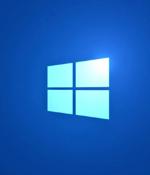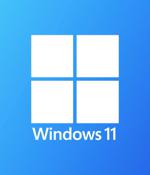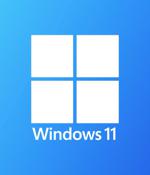Security News

A security flaw in the Windows Print Spooler component that was patched by Microsoft in February is being actively exploited in the wild, the U.S. Cybersecurity and Infrastructure Security Agency has warned. To that end, the agency has added the shortcoming to its Known Exploited Vulnerabilities Catalog, requiring Federal Civilian Executive Branch agencies to address the issues by May 10, 2022.

The Cybersecurity and Infrastructure Security Agency has added three new security flaws to its list of actively exploited bugs, including a local privilege escalation bug in the Windows Print Spooler. Redmond patched several other Windows Print Spooler bugs in the last 12 months, including the critical PrintNightmare remote code execution vulnerability.

Microsoft announced today that the 30-year-old SMBv1 file-sharing protocol is now disabled by default on Windows systems running the latest Windows 11 Home Dev channel builds, the last editions of Windows or Windows Server that still came with SMBv1 enabled. Redmond first announced plans to disable SMBv1 in most versions of the Windows operating system in June 2017 after first disabling it for internal builds of Windows 10 Enterprise and Windows Server 2016.

Hackers are luring unsuspecting users with a fake Windows 11 upgrade that comes with malware that steals browser data and cryptocurrency wallets. The hackers are preying on users that jump at installing Windows 11 without spending the time to learn that the OS needs to meet certain specifications.

Microsoft says Windows 10, version 21H2 is now designated for broad deployment, making it available to everyone via Windows Update. The Windows 10 21H2 rollout started in November 2021, but Microsoft only began offering it to all those checking for updates via Windows Update beginning on Friday, April 15, 2022.

The big feature update is currently available for download as an optional update and if you've already upgraded to the new operating system, you can try some new third-party programs to customize the experience and get the most out of Windows 11. Windows 11 is essentially Windows 10 with a new design, so it also comes with the same bloatware problem.

The big feature update is currently available for download as an optional update and if you've already upgraded to the new operating system, you can try some new third-party programs to customize the experience and get the most out of Windows 11. Windows 11 is essentially Windows 10 with a new design, so it also comes with the same bloatware problem.

Microsoft has fixed a new Windows RPC CVE-2022-26809 vulnerability that is raising concerns among security researchers due to its potential for widespread, significant cyberattacks once an exploit is developed.If exploited, any commands will be executed at the same privilege level as the RPC server, which in many cases has elevated or SYSTEM level permissions, providing full administrative access to the exploited device.

A popular Windows 11 ToolBox script used to add the Google Play Store to the Android Subsystem has secretly infected users with malicious scripts, Chrome extensions, and potentially other malware. While there were ways to use ADB to sideload Android apps, users began looking for methods that let them add the Google Play Store to Windows 11.

The China-linked Hafnium cyber-gang is using a strain of malware to maintain a persistent presence in compromised Windows systems by creating hidden tasks that maintain backdoor access even after reboots. Researchers within Microsoft's Detection and Response Team and Threat Intelligence Center spotted the software nasty, dubbed Tarrask, creating undesirable scheduled tasks via Windows Task Scheduler, which is typically used by IT administrators to automate such chores as updating programs, tidying up file systems, and starting certain applications.